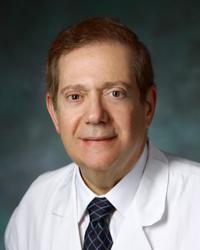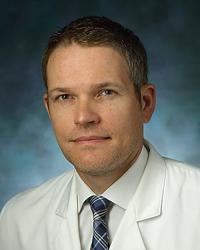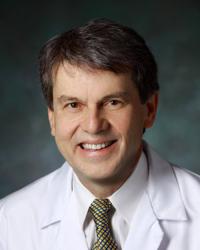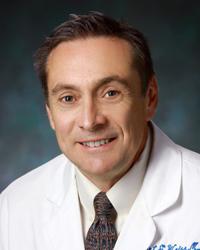-
Gary Gerstenblith MD

- Director of clinical trials, Division of Cardiology
- Professor of Medicine
Primary Location: The Johns Hopkins Hospital, Baltimore, MD
-
Allison Hays MD

- Medical Director of Echocardiography Programs of the Johns Hopkins Hospital
- Associate Professor of Medicine
Primary Location: The Johns Hopkins Hospital, Baltimore, MD
-
Thorsten Martin Leucker MD PhD

- Director, Cardiology Fellowship Program
- Associate Professor of Medicine
Primary Location: Johns Hopkins Outpatient Center, Baltimore, MD
-
Joao Lima MD

- Director of Cardiovascular Imaging
- Professor of Medicine
Primary Location: The Johns Hopkins Hospital, Baltimore, MD
-
Wendy S. Post MD MS

- Lou and Nancy Grasmick Professor of Cardiology
- Professor of Medicine
Primary Location: Johns Hopkins Health Care & Surgery Center - Green Spring Station, Lutherville, Lutherville, MD
-
Robert George Weiss MD

- Clarence Doodeman Professor of Cardiology
- Professor of Medicine
Primary Location: The Johns Hopkins Hospital, Baltimore, MD
-
Katherine Wu MD

- Associate Professor of Medicine
Primary Location: Johns Hopkins Outpatient Center, Baltimore, MD
HIV and Heart Disease
With advances in the treatment of HIV, people with HIV are now living longer but unfortunately experience heart disease and its complications at faster rates than people without HIV infection. Johns Hopkins cardiologists are studying how and why people with HIV are at increased risk of heart disease and testing therapies to prevent and treat heart and blood vessel disease in the HIV population.
Johns Hopkins researchers found that men with long-term HIV infections are at higher risk than uninfected men of developing plaque in their coronary arteries, regardless of other risk factors for coronary artery disease. Specifically, researchers measured plaque and stenosis — a narrowing of blood vessels — in the heart arteries for HIV-positive patients to measure whether the plaque had calcified or not, and to what degree. Noncalcified and partly calcified plaques are more likely than calcified plaques to trigger development of a clot that reduces or blocks blood flow to the heart. They found that noncalcified coronary artery plaque, seen on CT angiography, was more prevalent and extensive in HIV-infected men, suggesting increased risk for heart attacks. The results tell researchers that it is important to continue to modify traditional risk factors for HIV-positive individuals. As HIV treatment evolves, so should the diagnosis and treatment of heart disease in HIV-positive patients. Researchers are now studying predictors of progression of plaque and stenosis in this same group of men.
In another Johns Hopkins study, the coronary arteries of people infected with HIV who had not yet developed plaque reacted very abnormally to stress. This abnormal stress response was similar to people with severe coronary artery disease and is itself a predictor of future adverse cardiovascular events such as heart attack and sudden death. Thus, even before the presence of detectable plaque, the heart arteries of HIV-infected people exhibit abnormal responses associated with adverse outcomes. One possible explanation is that people living with HIV have elevated levels of inflammation and immune-activation, even if the levels of HIV are undetectable in the blood. Hopkins researchers are studying novel biomarkers of inflammation and whether decreasing inflammation improves the health of the heart arteries seen with MRI. Commonly prescribed medications such as colchicine, which is used to treat gout, and newer medications such as evolocumab, traditionally used to treat high cholesterol, are being tested.
In addition, heart failure and abnormal heart rhythms may be more likely in people living with HIV. Studies are ongoing to evaluate this risk using MRI tests that evaluate heart function and scarring and also using echocardiography. Research participants also wear heart monitors that detect irregular heart rhythms, such as atrial fibrillation, and also potentially dangerous ventricular arrhythmias.
